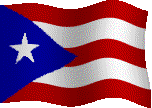 Leonard Masayon Tadios
Leonard Masayon Tadios 
Name: Leonard Masayon Tadios
Rank/Branch: E5/US Army
Unit: Advisor, Headquarters, MACV
Date of Birth: 09 January 1934
Home City of Record: Lanai HI
Date of Loss: 11 December 1964
Country of Loss: South Vietnam
Loss Coordinates: 094435N 1053357E (WE620770)
Status (in 1973): Killed in Captivity
Category: 1
Aircraft/Vehicle/Ground: Ground
Refno: 0047
Other Personnel in Incident: (none missing)
Source: Compiled by Homecoming II Project 01 September 1990 from one or more
of the following: raw data from U.S. Government agency sources,
correspondence with POW/MIA families, published sources, interviews. Updated
by the P.O.W. NETWORK 1998.
REMARKS: 660318 DIC/BNR ON PRG LIST
SYNOPSIS: SGT Leonard M. Tadios was a light weapons infantry advisor
attached to Headquarters MACV. On December 11, 1964, he was with an ARVN
unit operating about five miles southwest of Thanh Hoa in Phong Dinh
Province, South Vietnam. [NOTE: Defense Department lists loss coordinates as
Phong Dinh Province, or near the border of Chuong Thien Province, but US
Army accounts state that Tadios was lost in An Xuyen Province, which is some
50 miles southwest.]
The ARVN unit was ambushed by Viet Cong forces, and Tadios was captured and
taken prisoner. For the next 18 months, Tadios was held in several POW camps
throughout South Vietnam.
For Americans captured in South Vietnam, daily life could be expected to be
brutally difficult. Primarily, these men suffered from disease induced by an
unfamiliar and inadequate diet - dysentery, edema, skin fungus and eczema.
The inadequate diet coupled with inadequate medical care led to the deaths
of many. Besides dietary problems, these POWs had other problems as well.
They were moved regularly to avoid being in areas that would be detected by
U.S. troops, and occasionally found themselves in the midst of U.S. bombing
strikes. Supply lines to the camps were frequently cut off, and when they
were, POWs and guards alike suffered. Unless they were able to remain in one
location long enough to grow vegetable crops and tend small animals, their
diet was limited to rice and what they could gather from the jungle.
In addition to the primitive lifestyle imposed on these men, their Viet Cong
guards could be particularly brutal in their treatment. For any minor
infraction, including conversation with other POWs, the Americans were
psychologically and physically tortured. American POWs brought back stories
of having been buried to the neck; held for days in a cage with no
protection from insects and the environment; having had water and food
withheld; being shackled and beaten. The effects of starvation and torture
frequently resulted in hallucinations and extreme disorientation. Men were
reduced to animals, relying on the basic instinct of survival as their
guide.
Tadios was seen by several other Americans in POW camps, and several
reported that he was in very bad shape, and they helped care for him. Tadios
was sick and had stopped eating. One day he was removed from the camp and
never returned. The POWs were told he was taken to a hospital and he died.
At least one returnee stated that Tadios died of starvation. The Vietnamese
informed the U.S. that Tadios died March 18, 1966. They have made no effort
to return his remains.
Since the war ended, and 591 Americans were released from prison camps in
Vietnam, over 10,000 reports relating to Americans missing in Southeast Asia
have been received by the U.S. Many officials, having reviewed this largely
classified information have reluctantly concluded that hundreds of them are
still alive in captivity today.
 Leonard Masayon Tadios
Leonard Masayon Tadios 